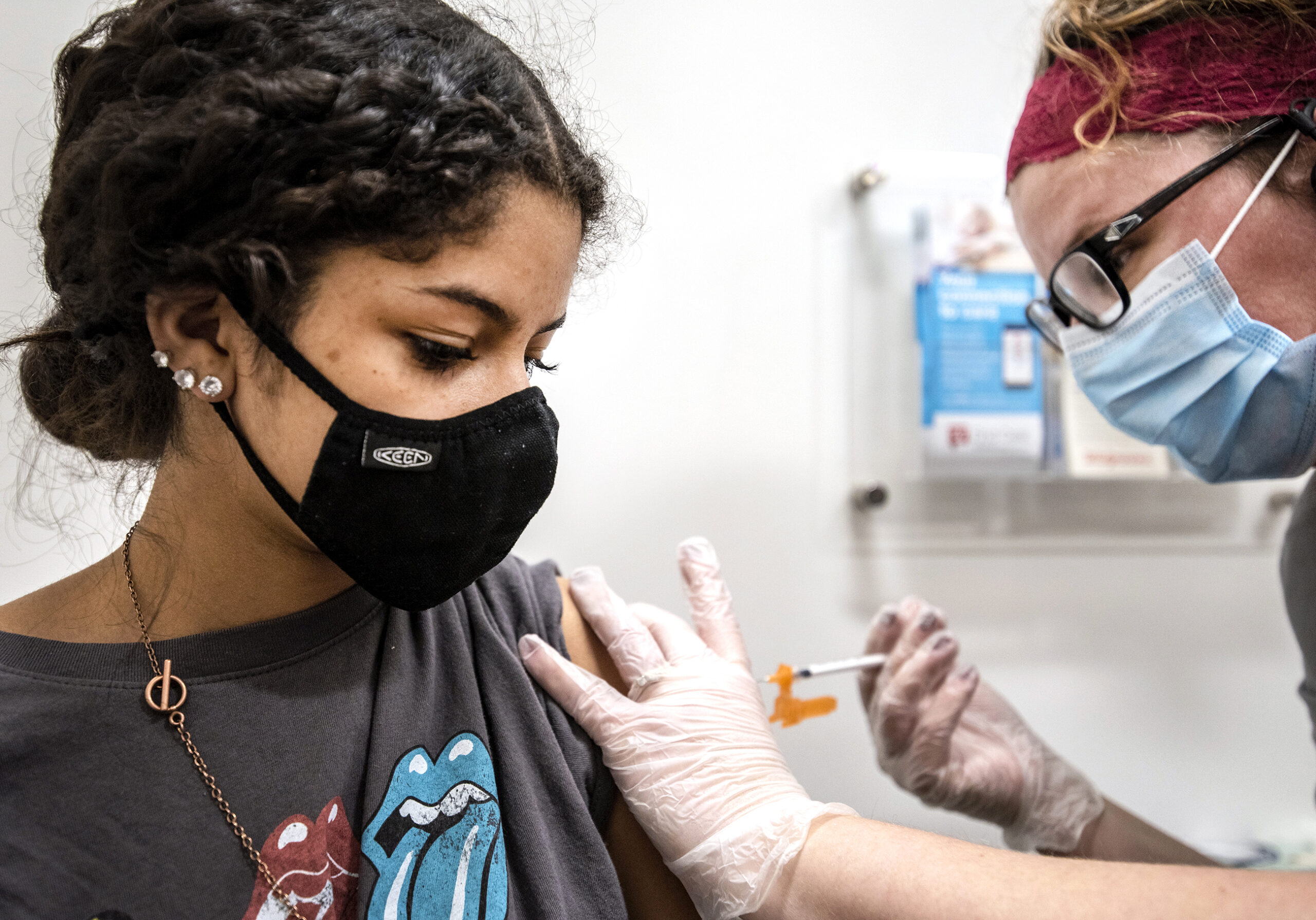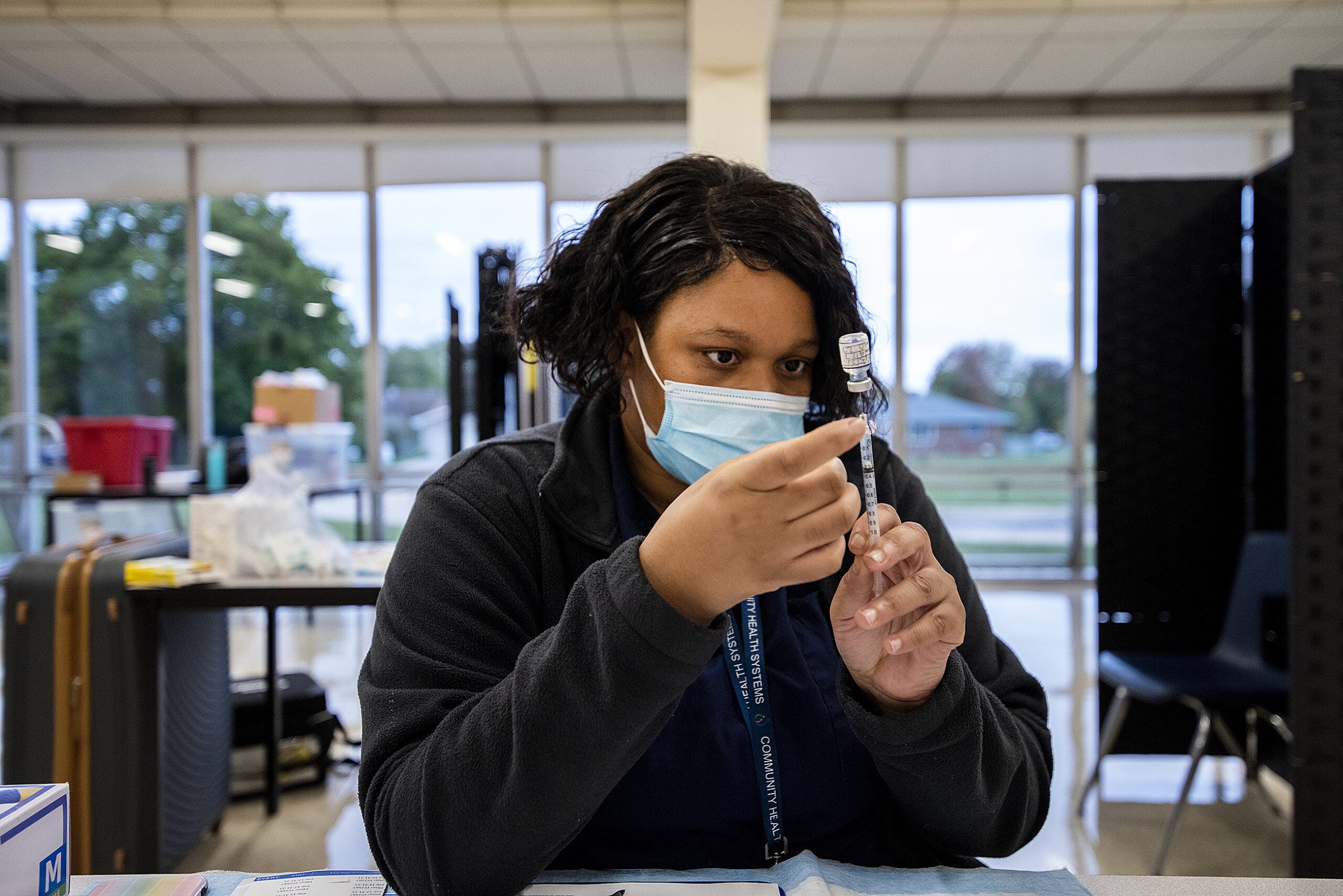COVID-19 vaccine recommendations have changed multiple times in the 29 months since the shot first became available, and it can be hard to keep everything straight.
Several audience members have submitted questions, hoping to clarify when boosters are needed. Wisconsin Public Radio’s WHYsconsin is here to help make sense of it all.
When do I need a COVID-19 booster?
News with a little more humanity
WPR’s “Wisconsin Today” newsletter keeps you connected to the state you love without feeling overwhelmed. No paywall. No agenda. No corporate filter.
Mary Jo Hanson says she’s 73, immunocompromised and has already had two boosters, the last dose of which was in October 2022. She asked WHYsconsin when she can and should get another booster dose.
To begin to answer that question, it’s important to distinguish between monovalent and bivalent vaccines, said Dr. Mary Beth Graham, an infectious disease specialist at Froedtert Hospital.
Bivalent versions of the Moderna and Pfizer-BioNTech vaccines first became available in September 2022. They differ from the original monovalent formulations because they protect against both the original virus and the newer omicron variant.
Under the latest guidance, the U.S. Centers for Disease Control and Prevention says that people over 6 years old are considered up to date if they’ve had at least one dose of a bivalent COVID-19 vaccine.
If you’re over 65, you’re eligible for an additional shot at least four months after your first bivalent shot. But, if you’re immunocompromised, the time period between shots could be shortened, and you may want additional boosters, depending on how severe the impairment to your immune system is, Graham said.
“It is a shared decision-making process with your provider with regards to risk and benefit of getting another vaccine at this point in time,” Graham said. “For people who are immunocompromised, again, it depends on that level of immunocompromised.”
So, in Hanson’s case, she’s eligible for another bivalent shot now since she’s over 65 and it’s been at least four months since her last dose. Given that she’s immunocompromised, Hansen could also talk to her doctor about when and whether to get additional boosters on top of that.
Kids between 6 months and 5 years old may need multiple COVID-19 shots to be up-to-date, including at least one bivalent vaccine, depending on their age and how many doses they’ve had previously. If you’re confused about what shots you need, a pharmacist or medical provider can help answer your questions, Graham said.

Will COVID-19 shots become an annual thing, like the flu?
Another audience member, Valerie Jahns, asked WHYsconsin about the future of COVID-19 shots and their frequency.
“Will/are COVID-19 shots be recommended or required on a yearly basis, similar to flu shots?” she wrote.
Scientists seem to be headed that way, Graham said, though it’s likely the yearly COVID-19 shots would be recommended but not required for most Americans.
The Food and Drug Administration has submitted a proposal to recommend an annual COVID-19 jab, with the first of those vaccines likely available by September. The goal would be to target the latest COVID-19 strains, just like the annual flu shot.
“The plan, at this point in time, is that the COVID vaccines will be updated on an annual basis to match circulating variants, similarly to how the flu vaccine is updated every year in order to match what the circulating influenza viruses are for the previous six months,” Graham said.
It’s possible those updated COVID-19 vaccines could be recommended more frequently than once a year for the elderly or immunocompromised — such as once every six months.
It’s also worth noting the distinction between a requirement and a recommendation.
There is no nationwide COVID-19 vaccine mandate, although many Americans have been subject to immunization requirements as part of their employment. Over the course of the pandemic, however, many businesses have since lifted those mandates.
In a similar vein, influenza vaccines are recommended every flu season, but they’re not mandated nationwide. Some hospital workers face flu vaccine mandates from their employers, though there’s typically opt-out provisions for medical or religious reasons.
Additionally, kids entering schools and day cares in Wisconsin face vaccine requirements from Wisconsin’s Department of Health Services to protect against certain diseases, including chickenpox and measles, although parents can get waivers by citing personal conviction, medical or religious reasons. Neither the flu nor COVID-19 are part of those DHS vaccine requirements for children entering schools and day cares.
But even if certain vaccines aren’t included as part of DHS rules, that doesn’t mean kids should skip the shots. The CDC recommends COVID-19 and flu shots for anyone over 6 months old.






